
- Order:
- Duration: 4:33
- Published: 24 Sep 2006
- Uploaded: 26 Mar 2011
- Author: rifmelody

































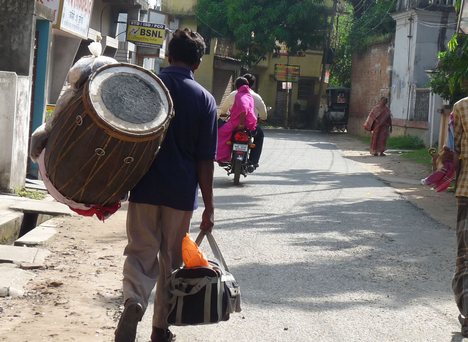



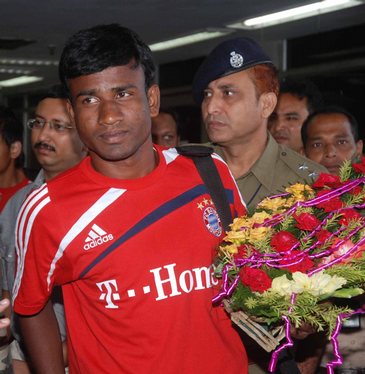


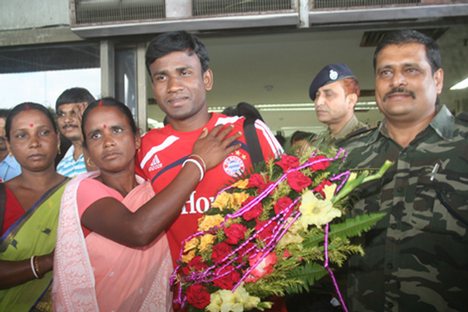



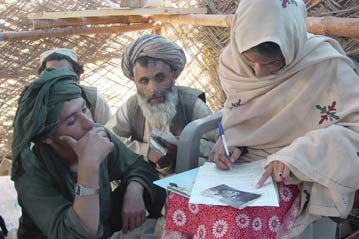

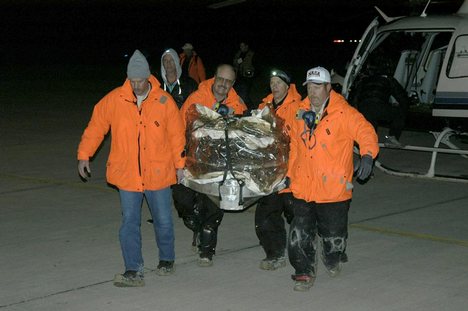








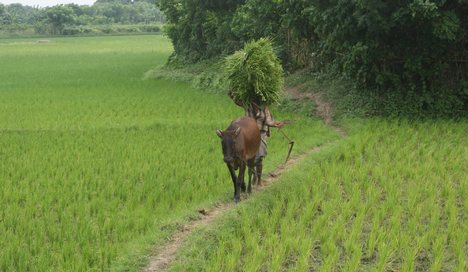



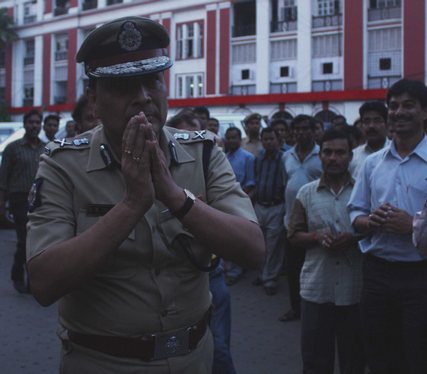
Idir (b. 1949 in Aït Lahcène, Algeria; real name Hamid Cheriet) is an Algerian musician.
Idir restarted his career again with the release of a compilation in 1991 of seventeen songs from his first two albums "A Vava inouva" and "Ay Arrac Negh".
In 1993, a new album "les Chasseurs de lumières" (the hunters of lights) appeared on the Blue Silver label. "Les Chasseurs de lumières" is about (his) predilection, love, freedom and exile (which he had known since he moved to the Paris region in 1975). The acoustic guitar gives to the songs of this album a touch of modernism. We can also hear the voice of the Breton singer Alan Stivell in the duo "Isaltiyen". Idir restarted his career once again with "Identities" in 1999, a tribute album which joined numerous artists together including Manu Chao, Dan Ar Braz, Maxime Le Forestier, and Karen Matheson for a "A vava inouva 2". Also included were Gnawa Diffusion, Zebda, Gilles Servat, Geoffrey Oryema and the Orchestre National de Barbès.
In 2008, he had a single with "Tout ce temps" written by Zaho. He insisted that she joins in for the release of the single as a duo.
Idir is also the author of "A tulawin", a music that has been made famous by Manu Chao's version named "Denia" (Poor Algeria), in his album .
Idir defended his national identity once again at "Le Zénith" in Paris in the spring of 2001 at the "21st Berber Spring", a celebration of Berber culture. And on July 8, he organised a special fund-raising concert to support the population in Kabylia when anti-government riots rocked the cradle of Berber culture in the summer of 2001. Idir was joined by a number of stars and thousands of Algerian and French fans who turned out to "Le Zénith" to support the population in Kabylia.
Category:1949 births Category:Living people Category:Algerian male singers Category:Kabyle people Category:Wrasse Records artists Category:People from Tizi Ouzou Province
This text is licensed under the Creative Commons CC-BY-SA License. This text was originally published on Wikipedia and was developed by the Wikipedia community.
| Name | Karen Matheson |
|---|---|
| Background | solo_singer |
| Birth name | Karen Matheson |
| Born | February 11, 1963 |
| Origin | Taynuilt, Argyll, Scotland |
| Instrument | Vocals |
| Genre | Folk music |
| Occupation | Singer |
| Years active | 1980s–present |
| Associated acts | Capercaillie |
| Url | www.karenmatheson.com |
She grew up in the small village of Taynuilt in Argyll. She was awarded an OBE in the 2006 New Year's honours list.
Matheson also appeared as a guest musician on Spirit of the West's 1997 album Weights and Measures.
She is married to fellow Capercaillie member Donald Shaw, and they have a son named Hector.
Category:1963 births Category:Living people Category:Officers of the Order of the British Empire Category:Eurovision Song Contest entrants of 1996 Category:French Eurovision Song Contest entrants Category:Scottish female singers Category:Scottish folk musicians Category:Scottish Gaelic-speaking people
This text is licensed under the Creative Commons CC-BY-SA License. This text was originally published on Wikipedia and was developed by the Wikipedia community.
| Fullname | Zinedine Yazid Zidane |
|---|---|
| Dateofbirth | June 23, 1972 |
| Club | Real Madrid |
| Cityofbirth | Marseille |
| Countryofbirth | France |
| Height | |
| Staff role | scout |
| Position | Playmaker |
| Youthyears1 | 1982–1983 |
| Youthyears2 | 1983–1986 |
| Youthyears3 | 1986–1988 |
| Youthclubs1 | US Saint-Henri |
| Youthclubs2 | SO Septèmes-les-Vallons |
| Youthclubs3 | Cannes |
| Years1 | 1988–1992 |
| Years2 | 1992–1996 |
| Years3 | 1996–2001 |
| Years4 | 2001–2006 |
| Clubs1 | Cannes |
| Clubs2 | Bordeaux |
| Clubs3 | Juventus |
| Clubs4 | Real Madrid |
| Caps1 | 61 |
| Goals1 | 6 |
| Caps2 | 139 |
| Goals2 | 28 |
| Caps3 | 151 |
| Goals3 | 24 |
| Caps4 | 155 |
| Goals4 | 37 |
| Totalcaps | 506 |
| Totalgoals | 95 |
| Nationalyears1 | 1991–1994 |
| Nationalteam1 | France U-21 |
| Nationalcaps1 | 18 |
| Nationalgoals1 | 3 |
| Nationalyears2 | 1994–2006 |
| Nationalteam2 | France |
| Nationalcaps2 | 108 |
| Nationalgoals2 | 31 |
Zinedine Yazid Zidane () (born 23 June 1972) is a retired French World Cup-winning footballer/soccer player. Zidane played for club teams in France, Italy and Spain, and was the captain of the French national team. He is widely considered as one of the greatest players in the history of football. He was the iconic figure of a generation of French players that won the 1998 World Cup and 2000 European Championship. After a brief international retirement, he returned to the national team in 2005 and captained France to the 2006 World Cup Final where he won the Golden Ball as the tournament's most outstanding player.
At club level Zidane won the La Liga and the UEFA Champions League with Real Madrid, two Serie A league championships with Juventus, and an Intercontinental Cup, and a UEFA Super Cup each with both aforementioned sides. He is alongside Brazilian striker Ronaldo, the only three-time FIFA World Player of the Year winner; he also won the Ballon d'Or in 1998. He retired from professional football after the 2006 World Cup.
Zidane joined a local club in the La Castellane district of Marseille. At the age of 14, he participated in the first-year junior selection for the league championship, where he caught the attention of AS Cannes scout Jean Varraud. He went to Cannes for a six-week stay, but ended up remaining at the club for four years to play at the professional level. Zidane played his first Ligue 1 match at seventeen, and scored his first goal on 8 February 1991, for which he received a car as a gift from the team president. His first season with Cannes culminated in a UEFA Cup berth.
Zidane was transferred to Girondins de Bordeaux in the 1992–93 season, winning the 1995 Intertoto Cup and finishing runner-up in the 1995–96 UEFA Cup in four years with the club. He played a set of midfield combinations with Bixente Lizarazu and Christophe Dugarry, which would become the trademark of both Bordeaux and the 1998 French national team. In 1995, Blackburn Rovers coach Ray Harford had expressed interest in signing both Zidane and Dugarry, to which team owner Jack Walker reportedly replied, "Why do you want to sign Zidane when we have Tim Sherwood?"
In 1996, Zidane moved to UEFA Champions League winners Juventus for a fee of £3.2 million and won the 1996–97 Serie A and the 1996 Intercontinental Cup, but lost the 1997 UEFA Champions League Final 3–1 to Borussia Dortmund. The following season, Zidane netted 7 goals in 32 matches in the league to help Juventus win the 1997–98 Serie A and thus retain the Scudetto. In Europe, Juventus made their third consecutive UEFA Champions League Final appearance, but lost 1–0 to Real Madrid which would be his next destination. Juventus finished second in the 2000–01 Serie A, but were eliminated in the group stage of the Champions League after Zidane was banned for headbutting Hamburger SV player Jochen Kientz. Zidane however was named Serie A Foreign Footballer of the Year for the second time.
In 2001, Zidane joined Real Madrid for a then world record fee of 150 billion Italian lire (about €75 million) and signed a four-year contract. He scored a famous match-winning goal, a volley hit with his weaker foot, in Madrid's 2–1 win over Bayer Leverkusen in the 2002 UEFA Champions League Final completing his personal quadruple. The next season, Zidane helped Real Madrid to win the 2002–03 La Liga and was named the FIFA World Player of the Year for the third time. In 2004, fans voted him as the best European footballer of the previous 50 years in UEFA's fiftieth-anniversary Golden Jubilee Poll.
While Zidane's final season of club football ended trophyless, he enjoyed success on a personal note recording the maiden hat-trick of his career, scoring thrice against Sevilla FC in a 4-2 win in January 2006. He ended the season for Real Madrid as their second highest goal scorer and assists provider behind teammates Ronaldo and Beckham respectively, with 9 goals and 10 assists in 28 games. On 7 May 2006, Zidane, who had announced his plans to retire after the 2006 World Cup, played his last home match and scored in a 3–3 draw with Villarreal CF. The squad wore commemorative shirts with ZIDANE 2001–2006 below the club logo.
He earned his first cap with France as a substitute in a friendly against the Czech Republic on 17 August 1994, which ended in a 2–2 draw after Zidane scored twice to help France erase a 2–0 deficit. After Éric Cantona was handed a year-long suspension in January 1995 for assaulting a fan, Zidane took over the playmaker position. France were eliminated in the Euro 96 semi-finals in a penalty shootout by the Czech Republic after the match ended 0–0 in extra time.
The 1998 FIFA World Cup was the first World Cup that Zidane participated in. It was held in his home country France. The French team won all three games in the group stage but Zidane was sent off in the second match against Saudi Arabia for a stamp on Fuad Anwar, becoming the first French player to receive a red card in a World Cup finals. Without their suspended playmaker France proceeded to win 1–0 in the last sixteen game against Paraguay and, on his return to the side, defeated Italy 4–3 on penalties after a goalless draw in the quarter finals. France then defeated Croatia 2–1 in the semi final. Zidane played a major role in the team's accomplishment, though he had yet to score a goal at the World Cup.
Zidane and France went on to play against defending champions and favourites Brazil at the Stade de France in the 1998 FIFA World Cup Final. France dominated Brazil from the kick-off, with Zidane scoring two identical goals, both headers from corner kicks taken by Emmanuel Petit and Youri Djorkaeff. Courtesy of Zidane's brace, France went into the break 2–0 up at half-time with one hand already on the World Cup trophy. Emmanuel Petit added a third goal deep in stoppage time to seal the 3–0 win and France's first ever World Cup. Zidane became an instant national hero and his image was projected onto the Arc de Triomphe.
Two years later France won Euro 2000, becoming the first team to hold both the World Cup and the European Championship since West Germany in 1974. Zidane finished with two goals, a memorable free kick against Spain in the quarter final and the golden goal in the semi final against Portugal, and was named player of the tournament by UEFA.
As reigning world and European champions, France entered the 2002 World Cup as favourites but a thigh injury prevented Zidane from playing in France's first two matches and without their talisman the French team failed to score in either match. He was rushed back prematurely for the third game despite not being fully fit, but could not prevent France from being ignominiously eliminated in the group stage without scoring a single goal; the worst performance by a defending champion in the history of the competition.
France again performed below expectations at Euro 2004 were knocked out by eventual champions Greece in the quarter finals. Zidane, however, had one of the most notable games of his career in the opening match against England, scoring two goals in stoppage time (a free kick and a penalty, respectively) to turn what would have been a 1–0 defeat into a 2–1 victory for the French. After France's elimination Zidane announced his retirement from international football.
With the mass retirement of veteran key players such as Bixente Lizarazu, Marcel Desailly, Claude Makélélé and Lilian Thuram, France struggled to qualify for the 2006 World Cup. At the urging of coach Raymond Domenech, Zidane came out of retirement and was immediately reinstated as team captain. Zidane, along with Thuram and Makélélé, made his competitive return for France in a 3–0 win over the Faroe Islands on 3 September 2005. The trio managed to turn back the clock to France's winning days of the late 1990s and early 2000s as a rejuvenated France went on to win their qualifying group. On 27 May 2006, Zidane earned his hundredth cap for France in a 1–0 friendly win over Mexico, in what would also be his last match at the Stade de France. Zidane became France's fourth player to reach 100 caps, after Desailly, Thuram and Didier Deschamps.
Zidane had a slow start to the 2006 World Cup and, after being suspended for the final match of the group stage, returned to set up a goal for Patrick Vieira and score one himself in the second round match against Spain. In the quarter final France held Brazil to just one shot on goal in the rematch of the 1998 final. Zidane assisted Thierry Henry's deciding goal and he was named Man of the Match by FIFA. France faced Portugal in the semi final and, as in Brussels six years earlier, Zidane's penalty kick decided the contest and sent France to another major final.
Before the 2006 FIFA World Cup Final in Berlin, Zidane was awarded the Golden Ball as the best player of the competition. Having already announced he was to retire after the expiration of his Real Madrid contract at the end of the 2005–06 season, the world of football already knew Zidane's second World Cup final was to be the last match of his career. Seven minutes into the match Zidane put France ahead with a penalty kick and became only the fourth player in World Cup history to score in two different finals, along with Pelé, Paul Breitner, and Vavá, in addition to being tied for first place with Vavá, Pelé and Geoff Hurst with three World Cup final goals apiece. He almost scored a second goal during the first period of extra time but his header was saved by Italy's goalkeeper Gianluigi Buffon. Zidane was then sent off in the 110th minute of the game after headbutting Marco Materazzi in the chest, so he did not participate in the penalty shootout which Italy won 5–3 courtesy of David Trezeguet's shot rattling the crossbar. Neither Fabien Barthez nor Gianluigi Buffon made a single save in the penalty shootout. In 2010, Zidane said that he "would rather die" than apologize to Materazzi for the headbutt in the final, but also admitted that he “could never have lived with himself” had he been allowed to remain on the pitch and help France win the match.
Following his red card in the final, Zidane retired from professional football, and confirmed that he would not go back on his decision. He was sentenced by FIFA to a three game suspension for his red card, but since he had retired from professional football, performed three days of community service instead.
In an interview in June 2008, Zidane stated that he wanted to return to football, but that he had no imminent plans to do so.
On 1 June 2009, Zidane was announced as the Advisor to the President after Florentino Perez was named President of Real Madrid for the second time. He along with Jorge Valdano, General Director, and Miguel Pardeza, Sporting Director, were to be the key decision makers on the sporting side of the club.
After France's dismal campaign in the 2010 FIFA World Cup, Zidane said that he did not plan to move into coaching anytime soon.
Qatar's 2022 World Cup bid committee announced in September 2010 that Zidane had been appointed as an ambassador for Qatar's attempt to host the 2022 World Cup. After FIFA announced on 2 December 2010 that Qatar had won the bid to host the 2022 FIFA World Cup, Zidane stated that he was "very pleased" with the outcome.
In November 2010, Zidane was appointed as a special adviser to Real Madrid's first team in response to an appeal made by Real Madrid coach Jose Mourinho for the former Real midfielder to work more closely with the team. In his new role, Zidane is expected to participate in Champions League events and functions. He is also to travel with the first team on a regular basis and participate in pre-match gatherings, training sessions and meetings with the head coach.
On 24 February 2007, before a crowd of 10,000 fans at a match in northern Thailand for the Keuydaroon children's AIDS charity, Zidane scored the first goal and set up the second for a Malaysian teammate as the match ended 2-2. The event raised ฿260,000 ($7,750). This money paid for the building of two schools and 16 three-bedroom houses.
On 19 November 2008, Zidane took part in the fifth annual Match Against Poverty in Málaga, Spain, which also ended in a 2-2 draw; he went scoreless but set up his team’s second goal. He and former Real Madrid teammate Ronaldo, who collaborated in conceiving the yearly event to benefit the United Nations Development Programme, regularly captain their respective teams consisting of active footballers, other professional athletes and celebrities. Zidane, a U.N. goodwill ambassador since 2001, stated before the game that “everyone can do something to make the world a better place.”
In June and July 2009, Zidane toured across Canada with stops in Toronto, Montreal, and Vancouver. Although billed as Zidane and "Friends", the likes of which included Fabien Barthez and Samuel Eto'o, the exhibition matches featured local players. Tournament organisers cited lack of sponsorship and support from the Canadian Soccer Association for the disorganized rosters. Some proceeds were given to Unicef.
On June 6, 2010, Zidane took part in the bi-annual charity event Soccer Aid. He played for the Rest Of The World Team, managed by Liverpool and Celtic hero Kenny Dalglish against England alongside former Real Madrid teammate Luis Figo, and Celtic legend Henrik Larsson. He played against former players such as Teddy Sheringham, David Seaman and Alan Shearer, as well as celebrities such as Robbie Williams. He played well, and his skill and control were still apparent to the fans in the stadium. He passed well and dribbled around the English team, and nutmegged English celebrity midfielder Damian Lewis. The Match took place at Old Trafford in Manchester and was won by The Rest of the World for the first time, by penalties after a 2-2 draw.
Filmmakers Philippe Parreno and Douglas Gordon filmed a documentary , which follows Zidane during an entire match, filmed with 17 cameras. The documentary was part of the 2009 Full Frame Documentary Film Festival.
Many experts have testified to Zidane's skills and impact as an all-time great, such as Brazil coach Carlos Alberto Parreira who has labelled Zidane "a monster" for his performance and playing skills. French footballer Michel Platini states Zidane is one of the most skillful players the game has ever known: "Technically, I think he is the king of what's fundamental in the game - control and passing. I don't think anyone can match him when it comes to controlling or receiving the ball."
German coach Franz Beckenbauer stated: "Zidane is one of the greatest players in history, a truly magnificent player." Pelé, a World Cup winner three times with Brazil, hailed Zidane after seeing Brazil losing to France: "Zidane was the magician in the game." Italy manager Marcello Lippi, who has also coached Zidane, opined "I think Zidane is the greatest talent we've known in football these last 20 years, yet he never played the prima donna. I am honoured to have been his manager." Similarly, David Beckham has described Zidane as "the greatest of all time FC Barcelona star Xavi said in a 2010 interview that Zidane was the best player of the '90s and early 2000´s. Brazilian superstar Roberto Carlos said in a 2010 interview with french newspaper L´equipe, that Zidane is the best player he has ever seen, and that Zidane is the best player of his generation.
Zidane met his wife, Véronique Fernandéz, while playing for Cannes in the 1988-89 season. They have four sons: Enzo (b. 24-03-1995), Luca (b. 13-05-1998), Theo (b. 18-05-2002), and Elyaz (b. 26-12-2006). Enzo, Luca and Theo are all members of the Real Madrid Academy. Enzo (Midfielder) is in Cadete A, Luca (Goalkeeper) is in Infantil B and Theo (Striker) is in Benjamin B.
}}
Category:1972 births Category:Living people Category:1998 FIFA World Cup players Category:2002 FIFA World Cup players Category:2006 FIFA World Cup players Category:AS Cannes players Category:European Footballer of the Year winners Category:FC Girondins de Bordeaux players Category:FIFA 100 Category:FIFA Century Club Category:FIFA World Cup-winning players Category:FIFA World Player of the Year winners Category:Association football midfielders Category:France international footballers Category:Expatriate footballers in Italy Category:Expatriate footballers in Spain Category:French expatriate footballers Category:French people of Algerian descent Category:Internet memes Category:Juventus F.C. players Category:Kabyle people Category:La Liga footballers Category:Officiers of the Légion d'honneur Category:Ligue 1 players Category:People from Marseille Category:Real Madrid C.F. players Category:Serie A footballers Category:UEFA Euro 1996 players Category:UEFA Euro 2000 players Category:UEFA Euro 2004 players Category:UEFA European Football Championship-winning players Category:World Soccer Magazine World Player of the Year winners
This text is licensed under the Creative Commons CC-BY-SA License. This text was originally published on Wikipedia and was developed by the Wikipedia community.
| Name | Albrecht Wenzel Eusebius von Wallenstein |
|---|---|
| Born | 14 September 1583 |
| Died | 25 February 1634 (aged 50) |
| Caption | Albrecht von Wallenstein |
| Placeofbirth | Heřmanice, Bohemia |
| Placeofdeath | Eger, Bohemia |
| Allegiance | |
| Serviceyears | ? - 24 January 1634 |
| Battles | Thirty Years' War |
A successful generalissimo who had made himself ruler of the lands of the Duchy of Friedland in northern Bohemia, Wallenstein found himself released from service in 1630 after Ferdinand grew wary of his ambition. Several Protestant victories over Catholic armies induced Ferdinand to recall Wallenstein, who again turned the war in favor of the Imperial cause. Dissatisfied with the emperor's treatment of him, Wallenstein considered allying with the Protestants. However, Ferdinand had the general assassinated at Eger (Cheb) in Egerland by one of the army's officials, Walter Devereux.
Wallenstein then joined the army of Rudolf II in Hungary, where he saw, under the command of Giorgio Basta, two years of armed service (1604–1606) against the Ottoman Turks and Hungarian rebels. He later endowed a monastery in her name, and had her reburied there. In 1617 Wallenstein married Isabella Katharina, daughter of Count Harrach. She bore him two children, a son who died in infancy and a surviving daughter. Wallenstein proved an able administrator of the duchy and also sent a large representation to Prague to emphasize his nobility.
]] In order to aid Ferdinand (elected Holy Roman Emperor in 1619) against the Northern Protestants and to produce a balance in the Army of the Catholic League under Johann Tserclaes, Count of Tilly, Wallenstein offered to raise a whole army for the imperial service following the bellum se ipsum alet principle, and received his final commission on 25 July 1625. Wallenstein’s success as a military commander brought him fiscal credit, which in turn enabled him to receive loans to buy lands, many of them being the former estates of conquered Bohemian nobles. Wallenstein also used his credit to grant loans to Ferdinand II, who then repaid him through lands and titles. Wallenstein's popularity soon recruited 30,000 (not long afterwards 50,000) men. The two armies worked together over 1625–1627, at first against Mansfeld.
Having beaten Mansfeld at Dessau (25 April 1626), Wallenstein cleared Silesia of the remnants of Mansfeld's army in 1627. At this time he bought from the emperor the Duchy of Sagan (in Silesia). He then joined Tilly in the struggle with Christian IV of Denmark,and afterwards gained as a reward the Duchies of Mecklenburg, whose hereditary dukes suffered expulsion for having helped the Danish king. This awarding of a major territory to someone of the lower nobility shocked the high-born rulers of many other German states.
Wallenstein assumed the title of "Admiral of the North and Baltic Seas". However, in 1628 he failed to capture Stralsund, which resisted the Capitulation of Franzburg and the subsequent siege with assistance of Danish, Scottish and Swedish troops, a blow that denied him access to the Baltic and the chance of challenging the naval power of the Scandinavian kingdoms and of the Netherlands. the situation further deteriorated when the presence of the Imperial catholic troops on the Baltic and the Emperor's "Edict of Restitution" brought King Gustavus Adolphus of Sweden into the conflict.
Over the course of the war Wallenstein's ambitions and the exactions of his army had made him a host of enemies, both Catholic and Protestant princes and non-princes. Ferdinand suspected Wallenstein of planning a coup to take control of the Holy Roman Empire. The Emperor's advisors advocated dismissing him, and in September 1630 envoys were sent to Wallenstein to announce his removal.
However, circumstances forced Ferdinand to call Wallenstein into the field again. and the Scots colonels Walter Leslie and John Gordon first rushed upon Wallenstein's trusted officers Terzky, Kinsky, Illo and Neumann whilst the latter banqueted at Cheb Castle (which had come under the command of John Gordon himself), and massacred them. Terzky alone managed to fight his way out into the courtyard, only to be shot down by a group of musketeers.
Wallenstein was buried at Jitschin (Jičín).
Wallenstein's particular genius lay in recognizing a new way for funding war: instead of merely plundering enemies, he called for a new method of systematic "war taxes". Even a city or a prince on the side of the Emperor had to pay taxes towards the war. He understood the enormous wastage of resources that resulted from tax exactions on princes and cities of defeated enemies only, and desired to replace this with a "balanced" system of taxation; wherein both sides bore the cost of a war. He was unable to fully realize this ambition; and in fact his idea led to the random exploitation of whole populations on either side, until finally, almost fifteen years after his death, the war had become so expensive that the warring parties were forced to make peace. In any case, Wallenstein's idea inspired many, among them, Colbert, to "pluck the goose with a minimum of screeching".
Composer Bedřich Smetana honored Wallenstein in his 1859 symphonic poem Wallenstein's Camp, which was originally intended as an overture to a play by Schiller.
Category:1583 births Category:1634 deaths Category:People from Náchod District Category:Bohemian nobility Category:Assassinated military personnel Category:People from Cheb Category:People of the Thirty Years' War Category:Rulers of Mecklenburg Category:Knights of the Golden Fleece Category:University of Altdorf alumni Category:Generalissimos
This text is licensed under the Creative Commons CC-BY-SA License. This text was originally published on Wikipedia and was developed by the Wikipedia community.